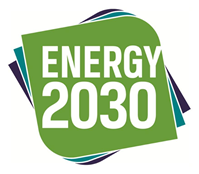Summary of the State Energy Race to the Top Initiative Act

Summary of the State Energy Race to the Top Initiative Act
Inspired by the Alliance Commission on National Energy Efficiency Policy’s Energy 2030 recommendations, Senators Mark Warner (D-Va.) and Joe Manchin (D-W.Va.) introduced the State Energy Race to the Top Initiative (SERTI) Act (S.1218) to create a national Race to the Top-style energy productivity competition with the goal of doubling U.S. energy productivity by 2030. Energy 2030 developed three main strategies that represent the key actions needed to double U.S. energy productivity: invest, modernize, and educate. And this competition could play a role in all three. As co-chair of the Commission, Senator Warner was very active in the development of this Energy 2030 recommendation, stressing that it brings energy efficiency to where the rubber hits the road. By empowering states and local communities to take leadership roles, this friendly competition can make a difference right where it really matters. The Alliance was also pleased when President Obama embraced the idea in his State of the Union address and 2014 budget, where he requested $200 million to create such a program. A coalition of stakeholders, including the Alliance, is advocating for a slightly modified version of the State Energy Race to the Top Initiative Act--with further clarification on the entities that are eligible for grants--to be included as an amendment to the Shaheen-Portman bill.
Friendly State Competition
Administered by the Department of Energy (DOE), the state energy productivity competition would be broken into two phases. In the first phase, following receipt of proposals by states and other eligible entities, funding would granted to approximately 25 states for initial policy and program development. DOE and others would also provide technical assistance to those entities that requested it. The second phase is intended to be more competitive, providing much larger grants to only six states to further implement the projects started in phase one. This initiative would begin in fiscal year 2014 and would run through fiscal year 2018. DOE would evaluate proposals for both phases of the competition based upon the quality of the plan, the likelihood of success, and other factors, including geographic diversity. Proposals could include a number of energy efficiency policy and program ideas including the expansion of industrial efficiency, building retrofits, demand response, and government investment. DOE would also run a parallel, smaller program for public power utilities, energy cooperatives, and Indian tribes.
Impact of Legislation
The State Energy Race to the Top Initiative would create new partnerships between the states and the federal government, encouraging states that have not yet undertaken many energy productivity measures to do so. Taking geographic diversity and other factors into consideration when allocating the grants would ensure that diverse states, public power utilities, energy cooperatives, and Indian tribes have the opportunity to increase their energy and cost savings. This competition places the tools needed in the hands of states and local communities, allowing them to develop the energy savings plans that work best for them and to share best practices with the rest of the country to ultimately double their state and community’s energy productivity by 2030.
STAY EMPOWERED
Help the Alliance advocate for policies to use energy more efficiently – supporting job creation, reduced emissions, and lower costs. Contact your member of Congress.
Energy efficiency is smart, nonpartisan, and practical. So are we. Our strength comes from an unparalleled group of Alliance Associates working collaboratively under the Alliance umbrella to pave the way for energy efficiency gains.
The power of efficiency is in your hands. Supporting the Alliance means supporting a vision for using energy more productively to achieve economic growth, a cleaner environment, and greater energy security, affordability, and reliability.



